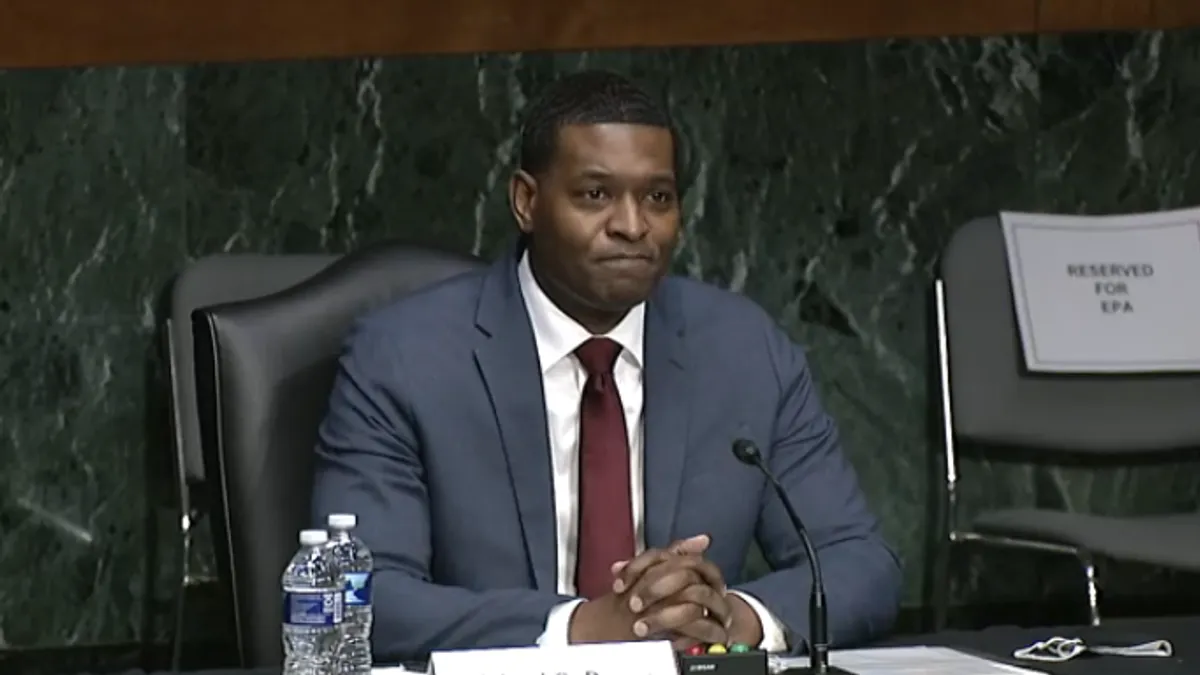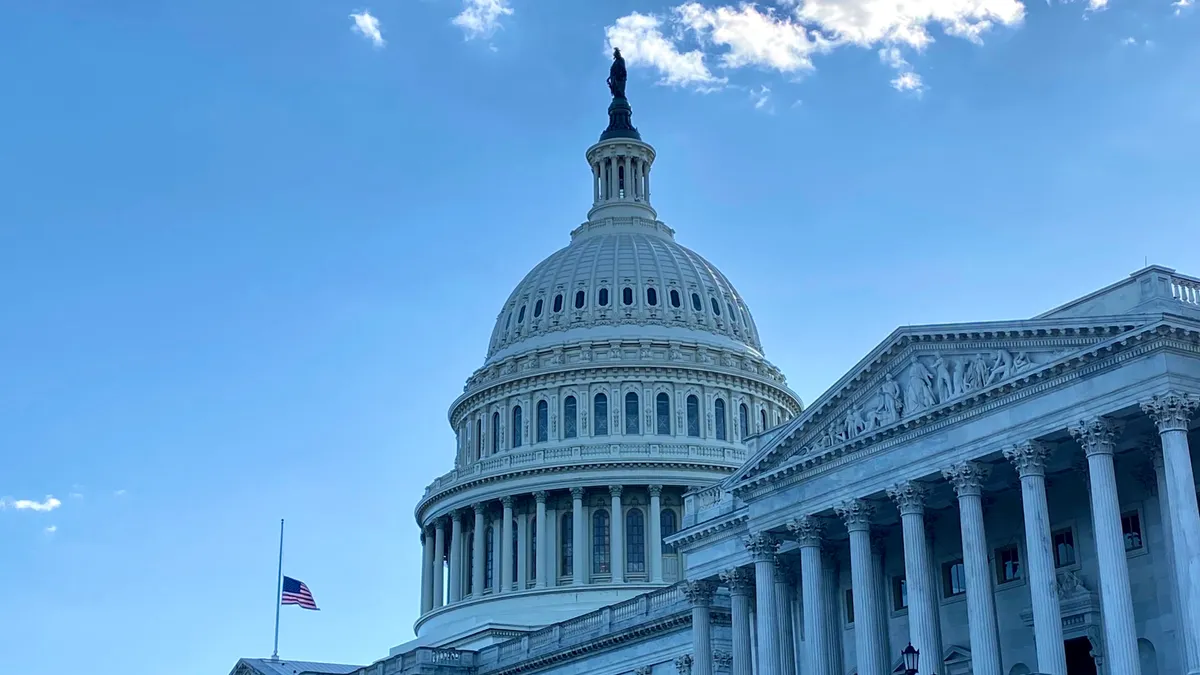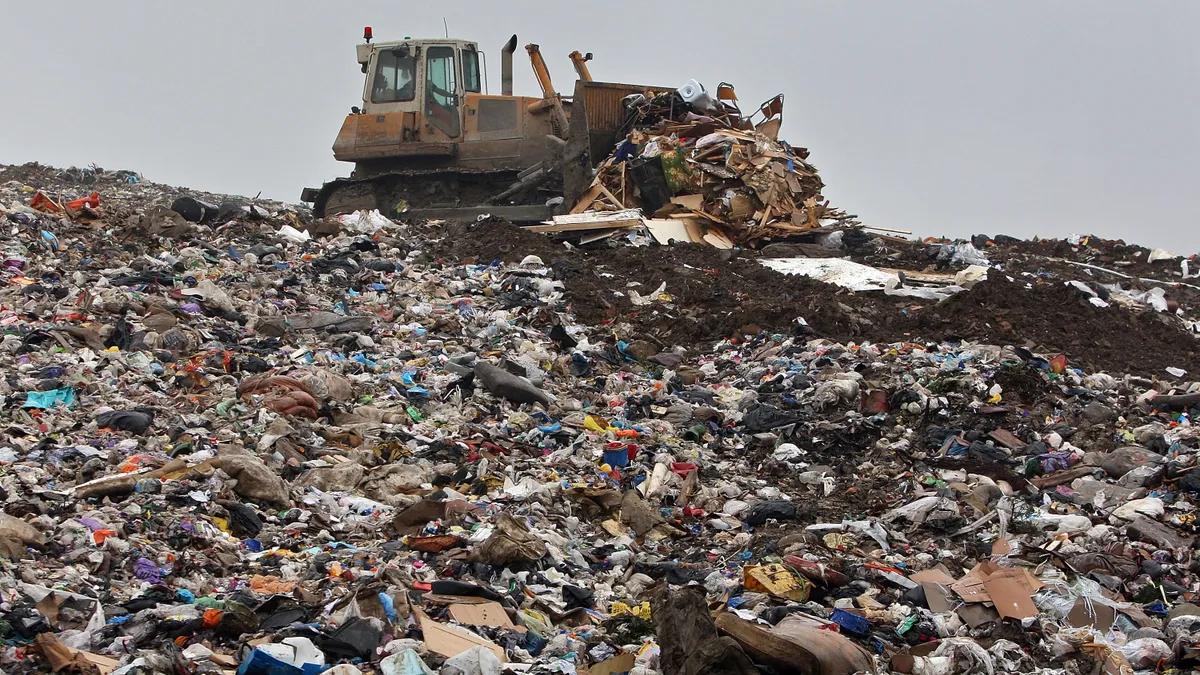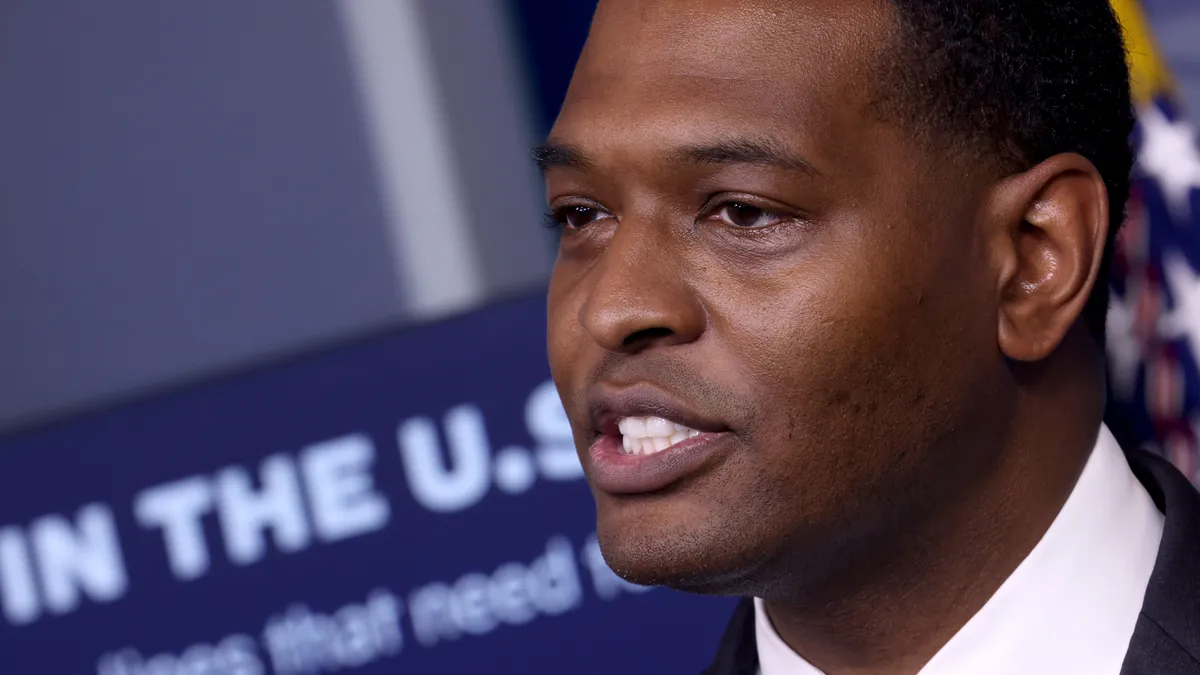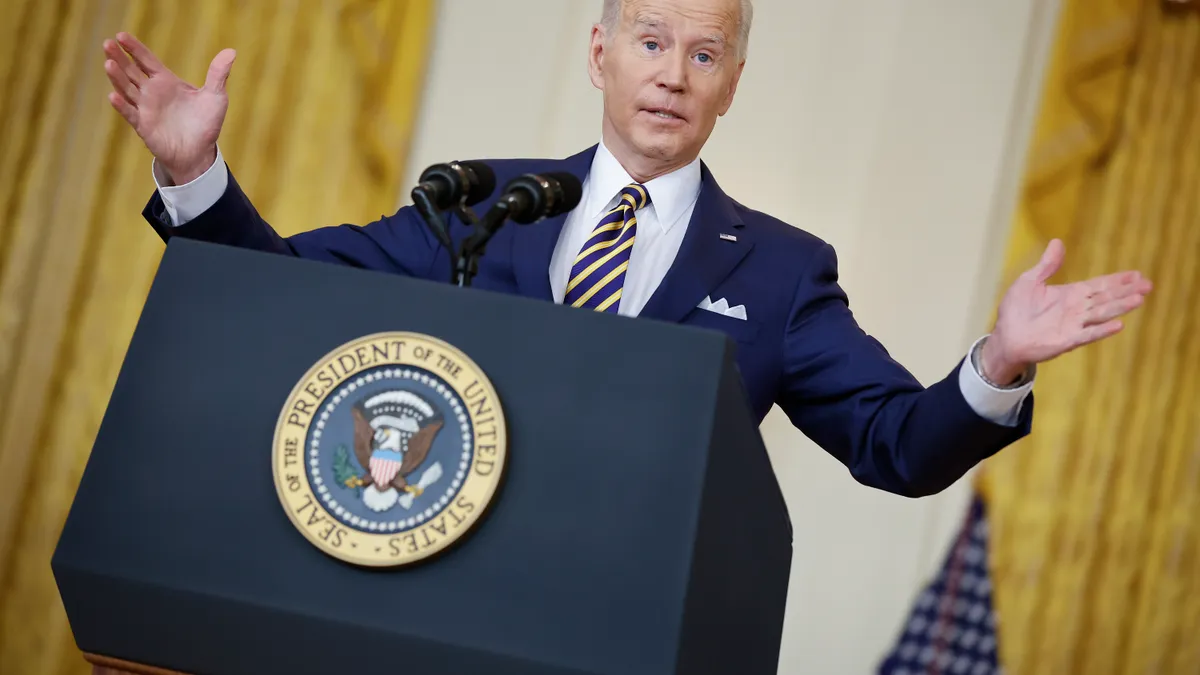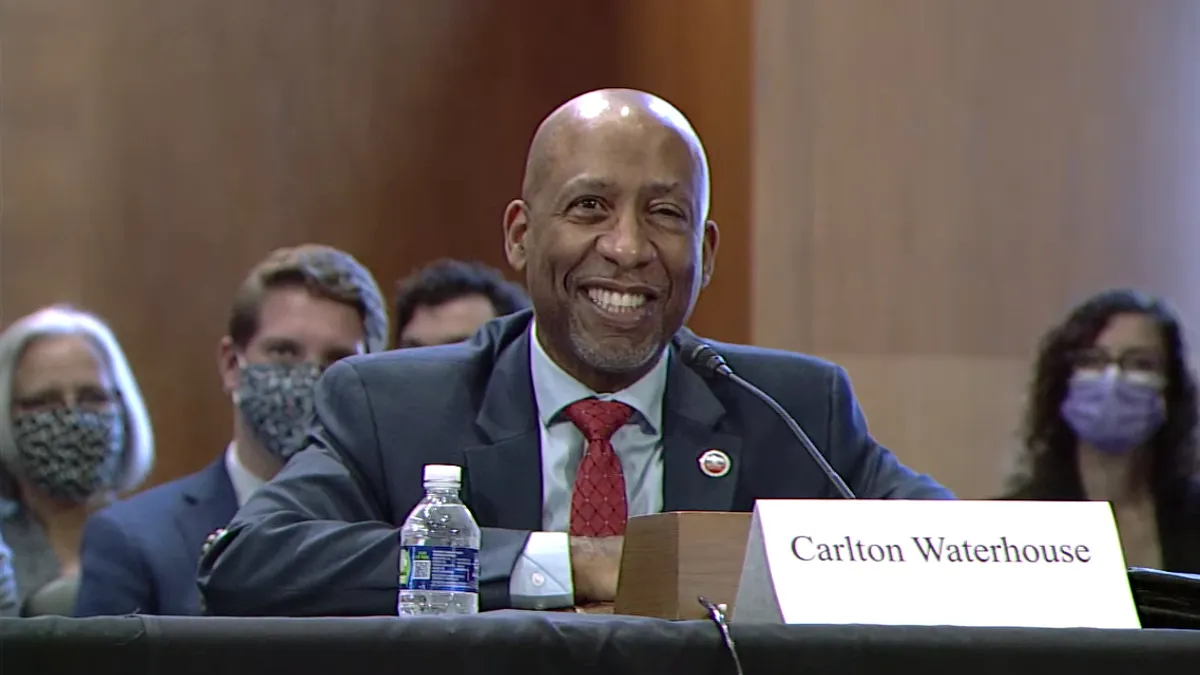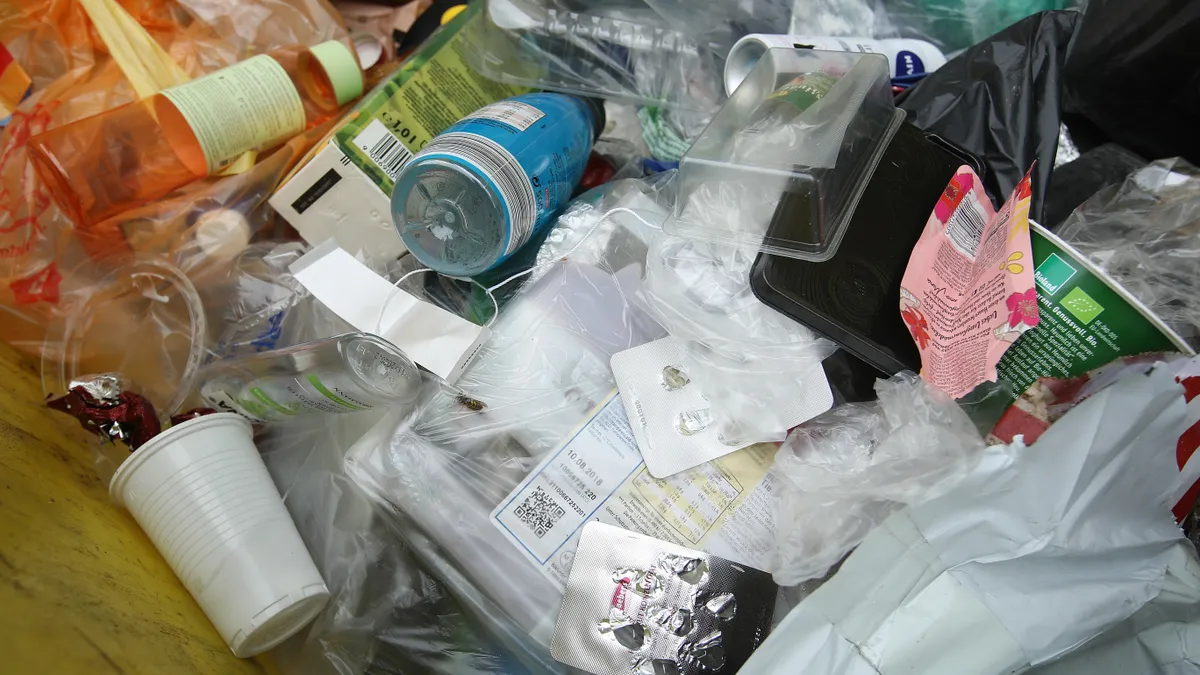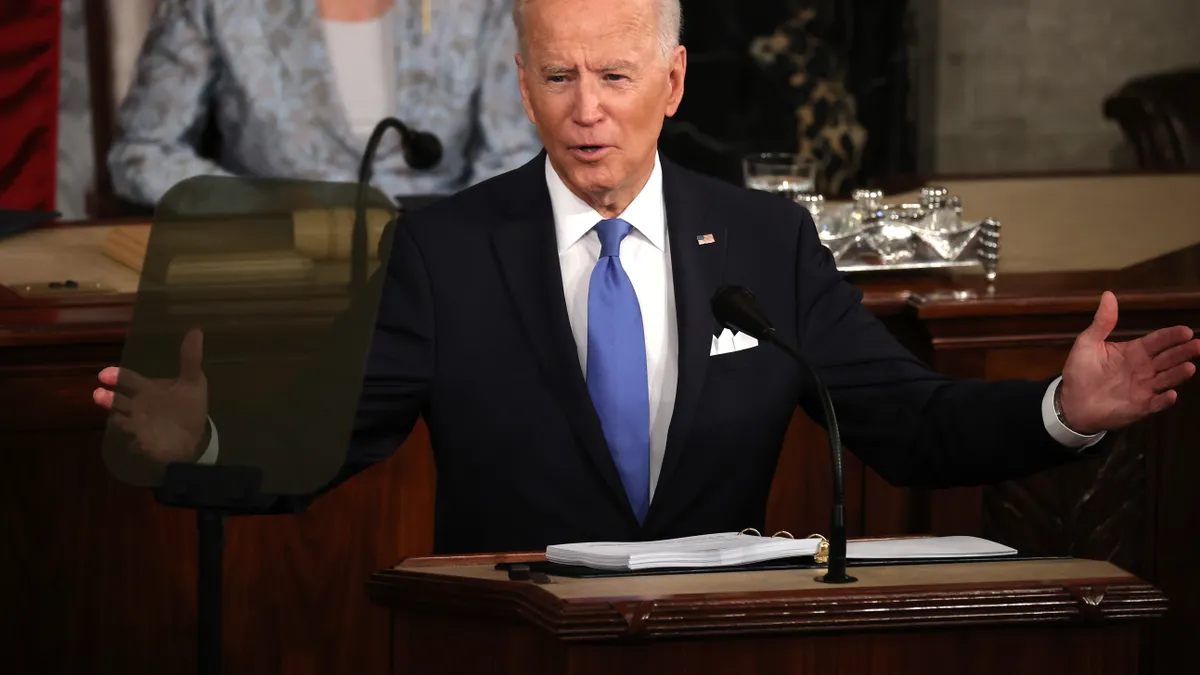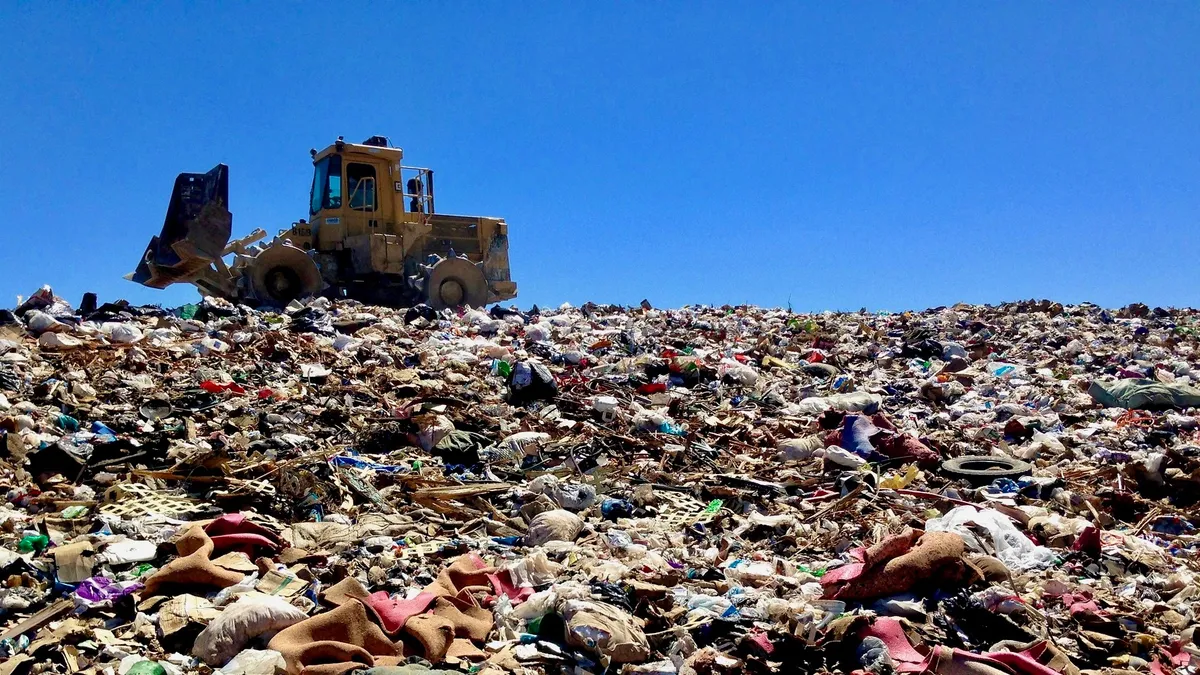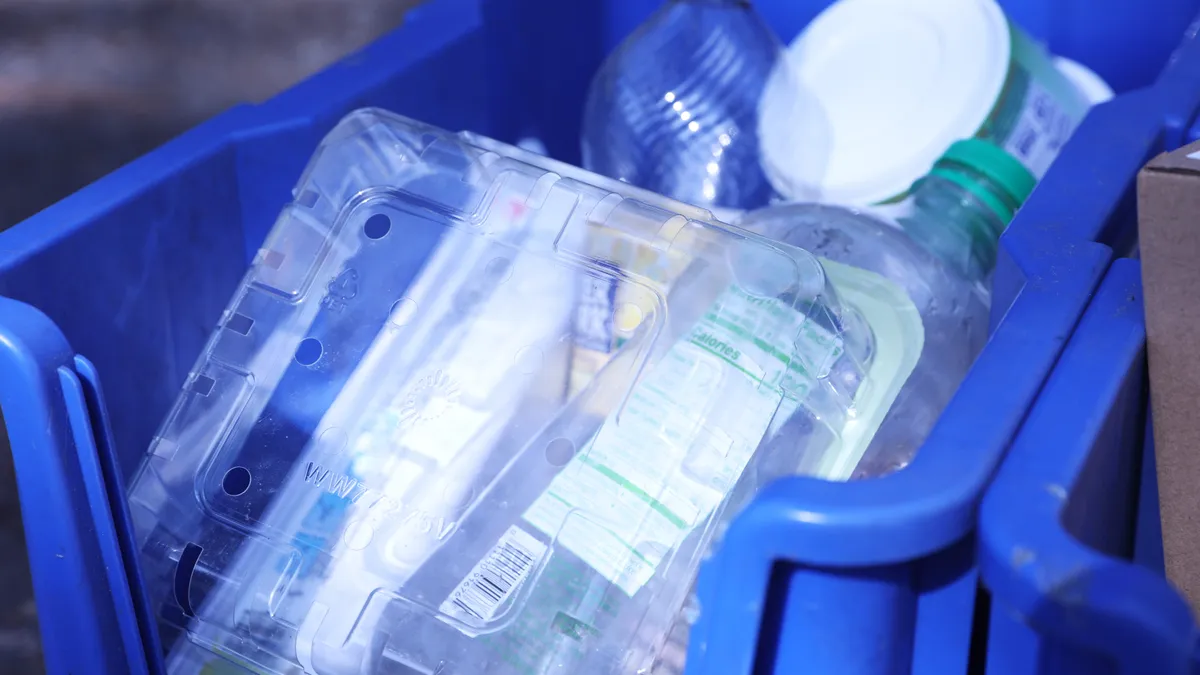UPDATE: March 11, 2021: The Senate confirmed Michael Regan as the next U.S. EPA administrator Wednesday by a vote of 66-34. All Senate Democrats voted in favor, along with 16 Republicans.
Dive Brief:
- Michael Regan, the nominee for U.S. EPA administrator, acknowledged plastic pollution as a “significant” challenge in response to a question during Wednesday's Senate confirmation. If confirmed, he agreed to take a further look at proposals and programs aimed at reducing single-use plastic.
- Regan, currently the secretary for the North Carolina Department of Environmental Quality (DEQ), also vowed to address issues related to per- and polyfluoroalkyl substances (PFAS), which he described as a “top priority” for the Biden administration. He promised to evaluate strategies for regulating the chemicals, but stopped short of confirming that EPA would set specific limits under the Safe Drinking Water Act.
- Known for his work on environmental justice initiatives, Regan also said he plans to direct more resources to efforts protecting marginalized communities affected by climate change and pollution.
Dive Insight:
If confirmed, Regan will be at the helm of an agency tasked with carrying out the Biden administration’s goals of tackling climate change and improving environmental justice.
Regan, who previously worked on the EPA's air quality and energy programs under former Presidents Bill Clinton and George W. Bush, and also worked at the Environmental Defense Fund, said he would uphold the administration’s initiatives using a science and research-based approach. Regan also pledged to proactively reach out to stakeholders when building policies.
During the hearing, Sen. Jeff Merkley (D-Ore.) urged Regan and the EPA to look more closely at the Presidential Plastics Action Plan, a document backed by more than 500 community and environmental advocacy groups. It asks the Biden administration to enact policies that would reduce plastic pollution, such as creating an office for recycling market development and waste reduction and appoint a plastic pollution czar. The Biden administration has not yet announced plans or strategies specific to recycling, though Congress is expected to reintroduce several recycling-related bills this year.
Although Regan said he was only “vaguely” familiar with the plastics action plan, he agreed plastics play a role in the country’s pollution challenges, “especially the impacts that we've seen with our marine life and our coastal communities.” He agreed that the EPA would take a “close look” at the proposal and evaluate what the agency’s role could be in advancing some of the proposed strategies.
The plan also asks the Biden administration to stop the government from buying single-use plastic products, instead using its federal purchasing power to buy reusable items. Merkley urged Regan to take another look at the EPA’s Environmentally Preferable Purchasing Program and make updates that will “set an example” by introducing more sustainable products in place of single-use plastics. Regan said the EPA would evaluate the program and look for areas “where we have an opportunity to be a global leader.”
During the hearing, Regan also underscored the importance of evaluating how the EPA treats PFAS. The Biden administration has stated it plans to designate certain chemicals in that category as hazardous and aims to set enforceable limits in the Safe Drinking Water Act. There are currently no federal maximum contaminant levels established for PFAS chemicals. In his work at North Carolina's DEQ, Regan negotiated cleanup efforts of the Cape Fear River, which had been contaminated with PFAS.
Senators Kirsten Gillibrand (D-N.Y.) and Shelley Moore Capito (R-W.Va.) told Regan they are working on bipartisan legislation that would require EPA to set standards in the Safe Drinking Water act for PFAS, which they said the previous administration did not move quickly enough to address.
Regan assured them the EPA would pursue PFAS discharge limits and water quality values, but stopped short of confirming that the EPA would officially implement a drinking water standard, instead saying he would "sit down and spend time with EPA and with our counsel to understand the multiple avenues I believe we have to address PFAS."
Regan also highlighted his commitment to environmental justice, another flagship priority for the Biden administration based on early activity. In recent years, several states have also become more focused on integrating environmental justice considerations into permitting requirements. Waste and recycling industry stakeholders, whose facilities could potentially be affected by these moves, say they are examining the role they can play in furthering these efforts.
Regan is known for establishing North Carolina’s Environmental Justice and Equity Advisory Board, and said he is enthusiastic about “bridging environmentalism and civil rights to find solutions for our fenceline and disproportionately impacted communities” at the federal level. He pledged to make sure the EPA can provide “adequate resources” to address environmental justice efforts and plans to hire an environmental justice advisor.
Regan also discussed the EPA’s plans for addressing issues related to the Renewable Fuel Standard program, which is meant to reduce greenhouse gas emissions and boost the country’s renewable fuels sector. Senators expressed frustration that past decision-making was not transparent, and Regan assured them the EPA would “let science lead us and we will follow the letter of the law as it was intended for that purpose.” Future decisions about the program could have implications for biogas generators, such as landfills and anaerobic digesters, and potentially influence the use compressed natural gas vehicles.
Throughout the hearing, in response to multiple questions, Regan promised to build EPA policies only after talking with stakeholders from all sides of the issue, and pledged to advance the administration's environmental goals without sacrificing U.S. economic growth.
Industry groups such as the National Waste and Recycling Association, the Solid Waste Association of North America and the Institute of Scrap Recycling Industries have previously said they look forward to working closely with Regan and his staff on relevant proposals.




